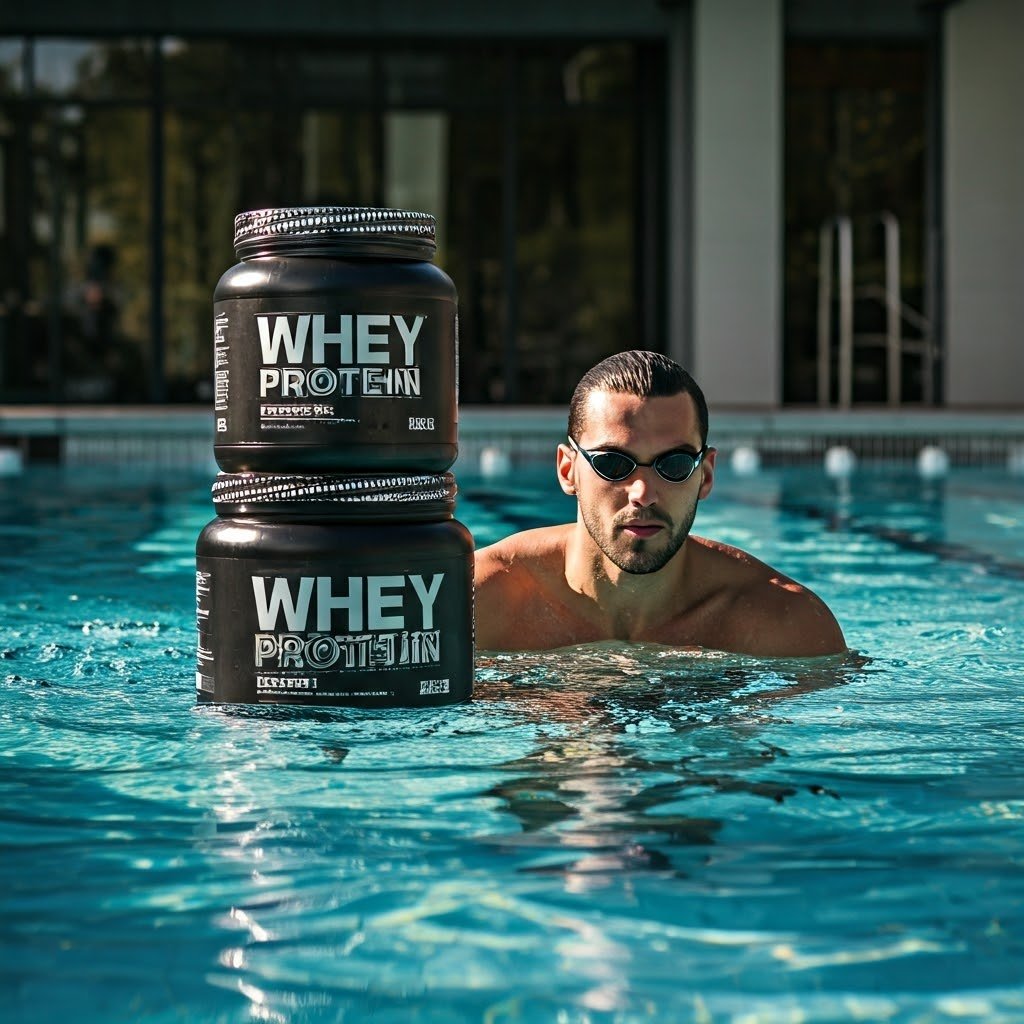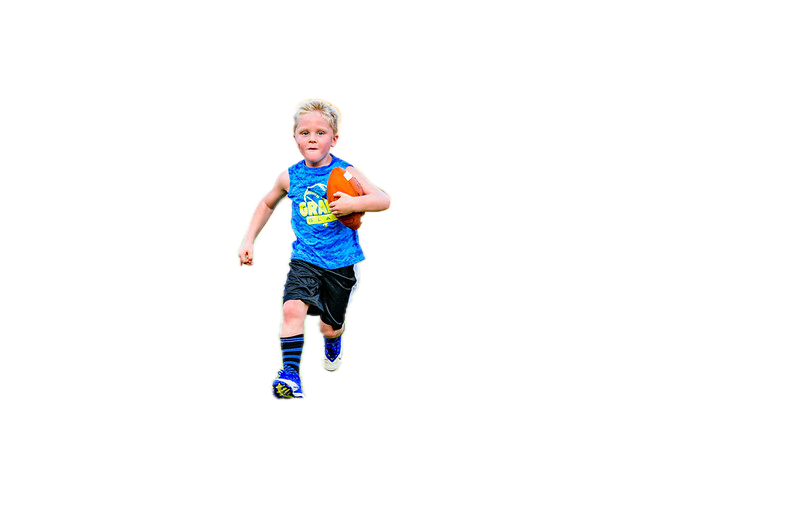
The Importance of Protein for Swimmers
- Children’s illustration – A French Creative Life - March 24, 2025
- Caught by Collagraphs – A French Creative Life - March 24, 2025
- Develop Excel Skills From Basics to AI Integration With This $35 Course Bundle - March 24, 2025
The Importance of Protein for Swimmers: Pre-Workout and Post-Workout Nutrition, Protein Powders, and Recovery
Swimmers face unique challenges when it comes to training. They require intense physical endurance, explosive power, and the ability to recover quickly. To achieve these goals and maintain optimal performance, protein plays a vital role. This article explores how protein affects muscle recovery when to consume it (pre- and post-workout), the various types of protein powders available, and how to integrate protein into a swimmer’s nutritional strategy for peak performance.
Understanding the Need for Protein in Swimming
Why Protein Is Critical for Swimmers
Swimming is an intense, full-body workout that places a significant demand on the muscles. When swimmers engage in training, especially high-intensity sessions like sprints, strength exercises, and interval training, their muscles undergo a process of micro-tearing. This muscle damage is a natural part of strength-building and performance improvement, but it requires proper recovery to avoid injury and overtraining.
This is where protein comes in. It is essential for muscle repair and growth. After a swim workout, especially after high-intensity sessions, the body needs a sufficient supply of amino acids (the building blocks of protein) to repair damaged muscle tissues and promote muscle protein synthesis (MPS), which leads to muscle recovery and growth. If a swimmer fails to replenish their body with adequate protein, it can result in slower recovery, muscle breakdown, fatigue, and decreased performance.
Protein also aids in muscle maintenance, which is important for swimmers aiming to maintain lean muscle mass while reducing fat. Swimmers are often looking to balance endurance training with strength training, making protein an essential part of their nutritional strategy.
Pre-Workout Nutrition for Swimmers
The purpose of pre-workout nutrition is to fuel the body for performance, ensuring that muscles are ready for the demands of a swim practice or competition. Properly timing protein intake before training can also help prevent muscle breakdown during exercise.
Why Take Protein Before Training?
- Prevent Muscle Breakdown: Consuming protein before a workout can help ensure that amino acids are available in the bloodstream during exercise, which may help prevent muscle breakdown.
- Provide Energy: While carbohydrates are the primary source of energy, protein can also support energy levels by preventing the body from catabolising muscle tissue for fuel.
- Stimulate Muscle Protein Synthesis (MPS): Protein before a workout primes the muscles for the repair process once the workout is completed, aiding in the growth and recovery process.
However, it is important to balance protein intake with carbohydrates before a workout. Carbs are crucial for energy, while protein supports muscle maintenance and recovery.
When to Take Protein Before Training
For optimal performance, swimmers should consume their pre-workout meal or snack 30–60 minutes before their training. The pre-workout meal should be a balanced combination of protein and carbohydrates to ensure adequate energy and muscle support.
Example Pre-Workout Meals for Swimmers
- Greek Yogurt with Honey and Berries: Greek yogurt is rich in protein and provides a good source of carbohydrates from honey and fruit. This can be a great option for swimmers.
- Egg White and Avocado Toast: A solid meal of egg whites (rich in protein) paired with whole-grain toast and avocado for healthy fats and carbs.
- Protein Smoothie: A blend of protein powder (e.g., whey protein), fruits, and vegetables can provide both protein and carbohydrates in a portable and easy-to-consume form.
- Cottage Cheese with Whole-Grain Crackers: Cottage cheese offers a slow-digesting protein source that will provide a steady stream of amino acids during the workout.
Protein Powders for Pre-Workout
The market is filled with a variety of protein powders, each with different digestion rates, amino acid profiles, and benefits. Here are some of the most popular protein powders that swimmers can consider for pre-workout consumption:
- Whey Protein: One of the most popular and fast-digesting protein powders. It contains all nine essential amino acids and is rich in branched-chain amino acids (BCAAs), which help reduce muscle breakdown during exercise. Whey protein isolate (WPI) is ideal for faster absorption, making it suitable for pre-workout consumption.
- Egg White Protein: A great alternative for those who are lactose intolerant or looking for a non-dairy option. Egg white protein is rich in essential amino acids and is rapidly absorbed by the body.
- Plant-Based Protein Powders (Pea, Hemp, and Rice): For vegan or vegetarian swimmers, plant-based protein powders offer a great source of protein. Pea protein, in particular, is highly digestible and often used in vegan protein blends, while hemp protein and brown rice protein can complement each other to ensure a complete amino acid profile.
- Casein Protein: Casein digests more slowly than whey protein, providing a steady release of amino acids over time. While not ideal for immediate pre-workout consumption, casein can still be helpful when combined with faster-digesting proteins.
Post-Workout Nutrition for Swimmers
Post-workout nutrition is critical for recovery, muscle repair, and rebuilding. After an intense swim workout, the body is in a catabolic state, meaning muscle tissue has been broken down and needs to be rebuilt. Protein plays a key role in this recovery process, and the timing of protein intake is crucial for muscle repair and growth.
Why Take Protein After Training?
- Muscle Repair and Growth: After swimming, the muscles need to recover from the stress and strain. Protein provides the amino acids needed to repair microtears in the muscle fibres, leading to muscle growth.
- Muscle Protein Synthesis (MPS): Consuming protein after a workout stimulates MPS, which is the process of building new muscle proteins. For swimmers, this is critical to ensure their muscles recover quickly and grow stronger.
- Glycogen Replenishment: While protein is essential, swimmers should also consume carbohydrates post-workout to replenish glycogen stores, which get depleted during exercise.
When to Take Protein After Training
Ideally, swimmers should consume protein within 30–60 minutes after finishing a workout. This is the anabolic window, during which the body is most responsive to nutrient intake, and protein is optimally used for muscle repair and recovery.
Example Post-Workout Meals for Swimmers
- Protein Shake with Banana and Peanut Butter: A quick and easy option that provides protein from the shake and carbohydrates from the banana.
- Grilled Chicken with Sweet Potatoes and Vegetables: A whole food option that combines high-quality protein (from chicken) with slow-digesting carbohydrates (sweet potatoes).
- Tuna Salad with Whole-Grain Bread: Tuna provides lean protein, and whole-grain bread offers complex carbs for replenishing glycogen.
- Cottage Cheese and Pineapple: A simple post-workout snack rich in protein and carbohydrates, offering both fast- and slow-digesting proteins.
Protein Powders for Post-Workout
For post-workout nutrition, swimmers often turn to protein powders because they are fast, convenient, and effective at delivering the necessary protein to the muscles quickly.
- Whey Protein: As mentioned earlier, whey protein is ideal for post-workout consumption due to its rapid digestion and absorption. It provides a quick supply of amino acids to support muscle recovery.
- Hydrolysed Whey Protein: Hydrolysed whey protein is broken down into smaller peptides, making it easier and faster for the body to digest and absorb. This form of protein is particularly useful for post-workout recovery, providing faster access to amino acids for muscle repair.
- Casein Protein: While casein is slower to digest, it can still be useful post-workout, especially if consumed before bed to provide a continuous supply of amino acids during sleep.
- Vegan Protein Powders: For vegan swimmers, plant-based protein powders like pea protein or soy protein are excellent alternatives. Combining different plant proteins can provide a full amino acid profile, which is necessary for muscle repair.
How Much Protein Should Swimmers Consume Post-Workout?
The amount of protein swimmers should consume after a workout can vary depending on their individual goals, body weight, and training intensity. However, a general guideline is as follows:
- Protein Intake Post-Workout: Swimmers should aim for 15–30 grams of protein within 30 minutes to 1 hour post-workout. This is usually sufficient to stimulate muscle protein synthesis and initiate the recovery process.
- Carbohydrates Post-Workout: It is also important to consume carbohydrates post-workout to replenish glycogen stores. The ratio of protein to carbohydrates for recovery typically ranges from 1:2 to 1:3, depending on the swimmer’s specific needs.
Sample Post-Workout Protein Schedule
- Within 30 minutes: A protein shake made with 20–30 grams of whey protein isolate, a banana, and some peanut butter for healthy fats and carbohydrates.
- 1-2 hours after workout: A solid meal of grilled chicken, sweet potatoes, and steamed vegetables to provide a balanced intake of protein, carbohydrates, and micronutrients.
Overcoming the Myths and Challenges of Protein Intake
While protein is vital for swimmers, there are some common myths and challenges surrounding its consumption. Swimmers often wonder whether they should take excessive amounts of protein, or if they need protein in every meal. Here are some clarifications:
- Do Swimmers Need Excessive Protein? While protein is essential for recovery, more is not always better. Excessive protein intake does not necessarily translate to more muscle growth and may place unnecessary stress on the kidneys. Swimmers should aim for 1.2 to 2.0 grams of protein per kilogram of body weight depending on training intensity.
- Can You Build Muscle Without Protein Powder? Yes, it is possible to meet protein needs through whole foods alone. However, protein powder provides a convenient and quick way to ensure adequate protein intake, particularly around training sessions.
Reference Books for Swimmers: Further Reading on Protein and Nutrition
For swimmers looking to deepen their understanding of protein, muscle recovery, and the role of nutrition in performance, the following books are invaluable resources:
- “Sports Nutrition for Endurance Athletes” by Monique Ryan: A comprehensive guide that provides evidence-based advice on protein needs for endurance athletes, and practical tips on fuelling, recovery, and optimizing performance through nutrition.
- “Nutrition for Sport and Exercise” by Marie Dunford and J. Andrew Doyle: A detailed textbook covering protein metabolism, macronutrient needs, and nutrient timing, particularly useful for athletes in endurance sports like swimming.
- “Advanced Sports Nutrition” by Dan Benardot: A more advanced resource on the role of protein in muscle recovery and performance, perfect for athletes who want to take their nutrition to the next level.
- “The Athlete’s Guide to Sports Supplements” by Kimberly J. Mueller and Josh Hingst: This book offers insights into various supplements, including protein powders, and how they can enhance athletic performance and recovery.
- “Strength Training for Swimmers” by John C. Leighton: A practical guide focused on the intersection of strength training and swimming, with detailed advice on nutrition, including protein’s role in recovery and performance.
Crafting the Perfect Protein Schedule
To summarise, the importance of protein for swimmers cannot be overstated. Protein is not only critical for muscle recovery, but it also plays an essential role in muscle growth, maintenance, and overall performance. By carefully planning pre-workout and post-workout nutrition, swimmers can ensure they are getting the right nutrients at the right times to optimise recovery and maximise performance.
Key Takeaways:
- Pre-Workout Protein: Swimmers should aim for a balanced pre-workout meal with protein and carbs30–60 minutes before training to prevent muscle breakdown and fuel energy.
- Post-Workout Protein: Swimmers should consume 15–30 grams of protein within 30 minutes of training to support muscle recovery and growth.
- Protein Powders: There are many types of protein powders available, including whey, casein, plant-based options, and more, each with its benefits for timing and digestion.
- Protein Intake Goals: Swimmers should target 1.2 to 2.0 grams of protein per kilogram of body weight based on individual goals and training intensity.
- Protein Is Not Just for Bodybuilders: Protein is essential for all swimmers, not just those looking to build muscle, as it helps with recovery and muscle preservation.
By following these guidelines and adjusting their protein intake around their training schedule, swimmers can enhance their performance, reduce the risk of injury, and promote faster recovery, making protein an indispensable part of their nutrition plan.
This integration ensures that swimmers have a comprehensive understanding of protein’s role in performance and recovery while also providing a list of essential resources for further study.
How to Make an Efficient Protein Shake at Home for Swimmers
Making a protein shake or protein powder at home can be a highly effective, cost-efficient, and nutritious way for swimmers to meet their protein needs, particularly when paired with a balanced diet. By preparing protein shakes at home, swimmers can control the ingredients, customize the flavour, and tailor the macronutrient profile to suit their individual needs. In this section, we’ll explore how swimmers can prepare efficient protein shakes and powders at home, as well as the nutritional benefits.
Protein shakes are a quick and convenient way to refuel after a swim workout, but they can also be used before training for a pre-workout energy boost. Here’s how swimmers can craft their own protein shakes at home to support muscle repair, recovery, and overall performance.
The Essentials of a Good Protein Shake for Swimmers
To make an efficient protein shake, swimmers should aim to include three key components:
- Protein (to support muscle repair and growth)
- Carbohydrates (for energy and to replenish glycogen stores)
- Healthy Fats (to provide sustained energy and aid in hormone regulation)
Basic Protein Shake Recipe for Swimmers
This is a simple yet highly effective protein shake that combines all three macronutrients to support muscle repair and recovery.
Ingredients:
- Protein Source (choose one):
- Whey protein (1 scoop) – fast-digesting protein that aids muscle recovery.
- Plant-based protein powder (1 scoop) – for vegan or lactose-intolerant swimmers (pea protein, hemp protein, or brown rice protein).
- Greek yogurt (½ cup) – a natural source of protein and probiotics.
- Cottage cheese (½ cup) – another excellent source of slow-digesting protein (casein).
- Carbohydrates:
- Banana (1 medium) – rich in potassium and provides fast-digesting carbs to replenish glycogen stores.
- Oats (¼ cup) – complex carbs that provide a slow and steady energy release.
- Healthy Fats:
- Peanut butter (1 tablespoon) – offers a good dose of healthy fats and a small amount of protein.
- Avocado (½) – rich in monounsaturated fats and fibre.
- Liquids:
- Almond milk or regular milk (1–1.5 cups) – serves as the liquid base of the shake. If you prefer a thicker consistency, use less liquid; for a thinner shake, add more.
Instructions:
- Add your protein source (e.g., protein powder, Greek yogurt, or cottage cheese) to a blender.
- Throw in the banana, oats, and healthy fat (peanut butter or avocado).
- Pour in the liquid (almond milk or regular milk) to help blend the ingredients together.
- Blend until smooth. Add ice cubes for a colder, thicker shake or water for a lighter consistency.
- Optional: If you like extra flavour, you can add a pinch of cinnamon, vanilla extract, or a handful of spinach for added nutrients without compromising the taste.
Nutritional Breakdown (Approximate):
- Protein: 25–30 grams (depending on the protein source)
- Carbohydrates: 30–40 grams (from banana, oats, and milk)
- Healthy Fats: 10–15 grams (from peanut butter or avocado)
- Calories: 300–450 kcal (depending on portion size and ingredients)
This shake is a perfect combination of quick-digesting proteins and carbs, along with healthy fats that support sustained energy and muscle repair.
Affordable, homemade protein powder
If you want a more affordable, homemade protein powder to keep on hand for shakes, you can easily create your own using whole food ingredients. Homemade protein powder can be customised to include your preferred protein source, and you’ll know exactly what’s going into it—avoiding unnecessary additives or sweeteners often found in store-bought options.
Ingredients for Homemade Protein Powder
- Base Protein Sources:
- Whey protein isolate or whey protein concentrate (for dairy eaters) – Whey protein is one of the fastest-digesting and most efficient protein sources for muscle recovery.
- Pea protein – A great plant-based option that is rich in essential amino acids, particularly for vegans or vegetarians.
- Hemp protein – Contains omega-3 fatty acids and fibre, making it a great plant-based protein choice.
- Egg white powder – A high-quality, fast-digesting protein.
- Brown rice protein – Another excellent plant-based option that provides a complete amino acid profile when combined with other protein sources.
- Additional Ingredients for Nutrient Boost:
- Ground flax seeds – Rich in omega-3 fatty acids and fibre.
- Cocoa powder – For a chocolate flavour, providing antioxidants.
- Turmeric – Known for its anti-inflammatory properties, which could help with muscle recovery.
- Spirulina powder – A nutrient-dense algae that provides additional protein, vitamins, and minerals.
- Sweetener (optional):
- Stevia or monk fruit – Low-calorie natural sweeteners.
- Maple syrup powder – For a natural, mildly sweet flavour.
How to Make the Protein Powder:
- Choose your base protein: Select one of the protein sources listed above. For example, you could start with pea protein as the base.
- Mix other ingredients: Add any additional protein sources for a complete amino acid profile. For instance, mixing pea protein with hemp protein will provide a fuller spectrum of essential amino acids.
- Add extra nutrients: If you like, you can blend in flax seeds for extra healthy fats or a tablespoon of cocoa powder for a chocolate-flavoured powder. You can also add a pinch of turmeric for its anti-inflammatory benefits.
- Blend into a fine powder: Use a high-speed blender or food processor to grind and mix the ingredients into a fine powder. Ensure that everything is thoroughly combined to create a homogenous powder.
- Storage: Store the homemade protein powder in an airtight container in a cool, dry place. It should last for up to 1–2 months.
Custom Protein Powder Recipe Example:
- 1 cup pea protein powder
- ½ cup hemp protein powder
- ¼ cup ground flax seeds
- 2 tablespoons cocoa powder
- 1 tablespoon turmeric powder
- 1–2 tablespoons stevia or maple syrup powder (optional)
Instructions:
- Blend all ingredients together in a food processor or blender.
- Store in an airtight container in a cool, dark place.
This protein powder can be mixed with water, milk, or a smoothie base for an easy-to-digest post-workout protein shake.
When to Use Protein Shakes
Swimmers can consume their homemade protein shakes at various points in the day depending on their training schedule and nutritional needs. Here’s a basic guideline for when to use protein shakes:
- Pre-Workout: To provide fuel for training, consume a protein shake with both protein and carbs 30–60 minutes before swimming. This will help prevent muscle breakdown and provide sustained energy.
- Post-Workout: Immediately following a swim workout, aim to consume a protein shake within 30 minutes to kick-start muscle recovery and protein synthesis.
- Between Meals: If you’re finding it difficult to meet your protein goals through whole foods, a protein shake can be a convenient snack between meals.
- Before Bed: For swimmers who need a sustained protein release overnight, a shake made with casein (slow-digesting protein) can provide a steady stream of amino acids during sleep, supporting muscle repair and growth.
Conclusion
Making your protein shakes or protein powder at home can be highly effective, customizable, and budget-friendly to ensure you’re getting the right nutrients to support your swim training and performance. Swimmers can optimise their recovery, muscle growth, and overall energy levels by including a balance of high-quality protein, carbohydrates, and healthy fats.
Whether you’re using protein powder from a store or creating your custom protein blend at home, ensuring you have the right protein intake at the right times—pre- and post-workout—can significantly enhance your muscle recovery, help prevent injury, and elevate your swimming performance










